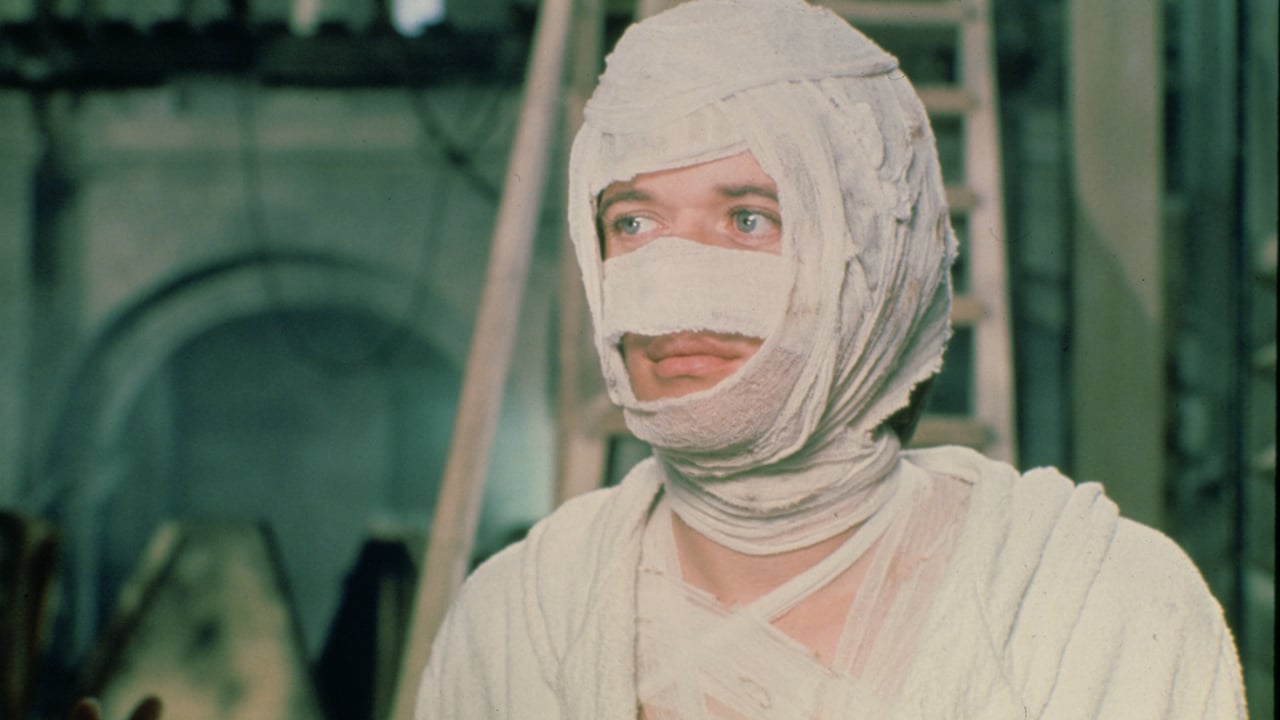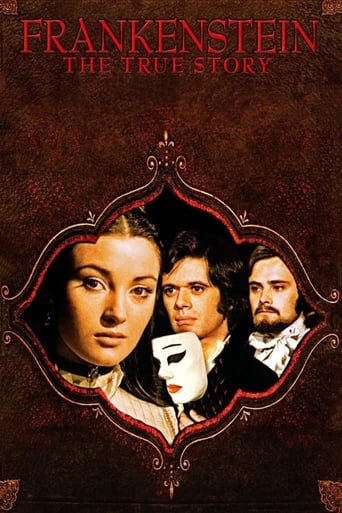


Do not let this one fool you. This NOT a faithful adaptation of Mary Shelley's novel. The very idea that the Frankenstein creature is decomposing contradicts that the creature was given life. He's alive, not just reanimated dead tissue, that's a major point in the story. It's a disappointing and senseless twist that is completely unnecessary. If you want a version of Frankenstein that actually follows Mary Shelley's novel check out the version produced by Hallmark and released to DVD by Lion's Gate starring Luke Goss as the creature. That mini-series version of Frankenstein from 2004 is the most faithful to the book.
... View More"Frankenstein - The True Story" starts with the redoubtable James Mason introducing himself and explaining that what we are about to see is all from the imagination of 19 year old Mary Shelley. It really isn't, you know. This film is a hybrid of the novel, the 1930's movies and the 1950's Hammer version, all mixed up by Christopher Isherwood of "Cabaret" and "A Single Man". The result is a sumptuous Gothic tragedy with a literate script.In this version, Dr. Frankenstein brings a corpse back to life using power from the sun. This is no lumbering monstrosity but a good- looking young chap, eager to learn and with a love of opera. So Victor and his creation get along very well - Victor teaches the creature refined etiquette and takes him out and about. But then Victor realises his monster is degenerating as time passes, and turning back into a walking corpse. As the creature's once-fine features crumble, Victor turns his back on the monster who responds first with confusion and grief, then fury. What I really liked about this version is that it makes the motives of all the key players fall into place. You really sympathise with this creature, rejected by an indifferent creator as a failed experiment. And while the film is not particularly gory or scary, there are some genuinely unsettling moments - like the insinuation that the monster's soul is an amalgam of all the dead that went into making him.There's a terrific cast including James Mason as the malevolent Dr. Polidori (and no-one seems quite so delighted with themselves when being evil as good old JM). Michael Sarrazin as the creature, David McCallum as Victor's mentor and Jane Seymour Medicine Woman as Yokel With Cleavage. Lots of other familiar faces turn up too including John Gielgud, Ralph Richardson, Tom Baker, Agnes "Endora" Morehead and even Yootha "Mildred" Joyce. I've never been a Frankenfan before, but I really enjoyed this one.
... View MoreOmg zzz. I bought this DVD partly because of its high rating on IMDb and partly because I'm an Agnes Moorehead fan but wow, it was mostly boring and Moorehead only had a tiny part. I have to qualify that it was probably more boring to me than others because of my impatience with fine literature, even if it's a movie adaptation of it. By all accounts, this movie is a faithful reproduction of Mary Shelley's novel, but like with faithful adaptations of Shakespeare's plays for example, it just made me want to sleep. Otherwise, it was a pretty good production. The sets looked great, and the movie had a pretty famous cast. I was most taken with Jane Seymour's Prima - gorgeous but with an edge, like something evil lurks beneath the surface - quite a perfect Bride of Frankenstein.
... View Morei remember watching Frankenstein the true story as a child on TV. There is a scene where Jane Seymour is wearing a black necklace, and someone pulls it off her neck, and her head falls off! I just want to know is this true or not? I know that she was wearing a black necklace, I really need to know if her head falls off when the necklace comes off. I really think this movie was great, and i haven't seen it since i was a child on TV. I really would like to know who else seen this on TV as well. i really don't remember the movie as well as i would like to have, there was only part that stuck in my head till this day,when her head fell off. It was so overwhelming to me. Any feedback will be helpful.
... View More